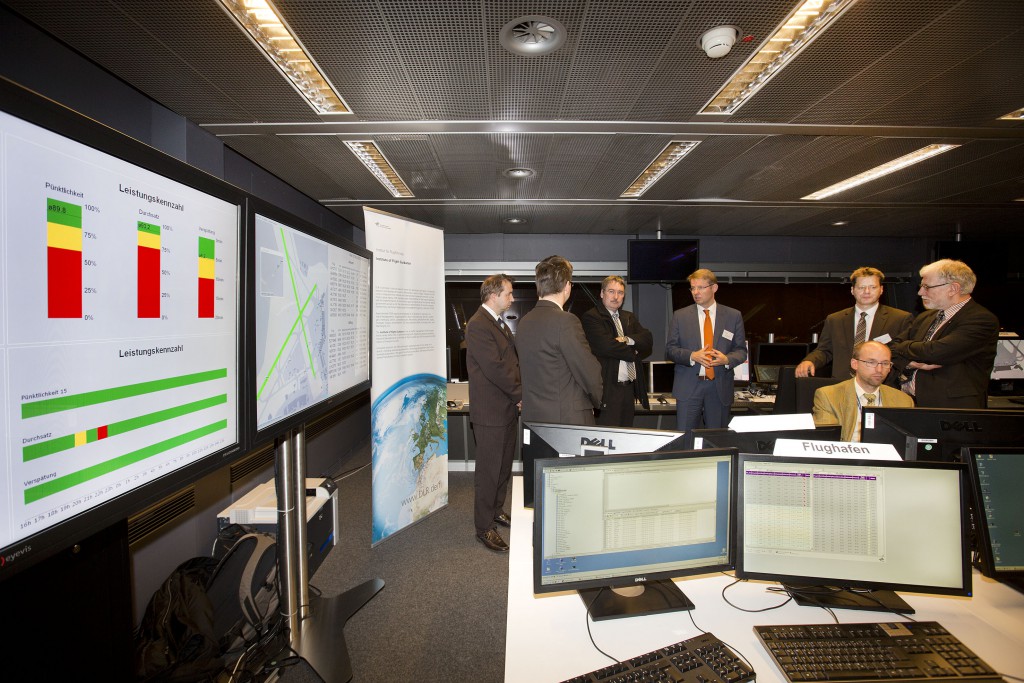Airport 2030
In 2009 the German Federal Ministry of Education and Research (BMBF) funded the project ‘Airport2030’ as part of an excellence initiative in Germany where Hamburg was selected by the BMBF as the world’s third largest network of civil aviation industry. Framed by a coordination, simulation and evaluation work package, four technical work packages have been set up to cover the main aspects for future development: ‘Passenger’, ‘Aircraft’, ‘Airport Access’, and ‘Operators’.
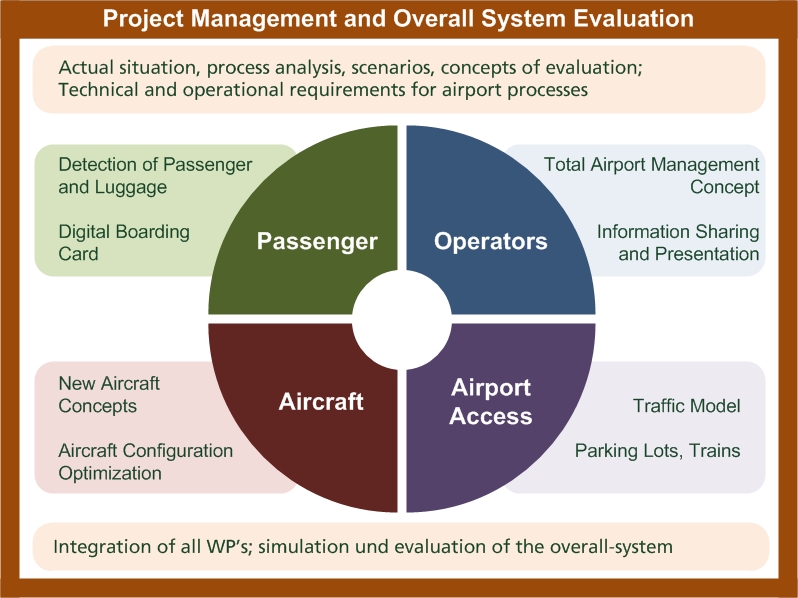
Within the ‘Operators’ work package the ARIF played a significant role for the three pillars, that have been identified looking for the optimization of the control of ground handling services, support systems for managing traffic on the apron, as well as the improvement of safety and efficiency of the entire airport operation by implementing a total airport management. The ARIF supported data analyses, system development, as well as technical testing and evaluation with operators.
The groundhandling pillar concentrated on the continuation of previous projects and brought the vehicle management system to a new level. A fully integrated dispatcher station was developed using an adapted version of the eDEP (early Demonstration and Evaluation Platform) developed by Eurocontrol. As the system was again integrated in the control room of the groundhandling company and connected to the research network, optimal conditions for evaluation were given. During shadow mode trials operators could use the system and had the chance to asses and rate the developed system by questionnaires.
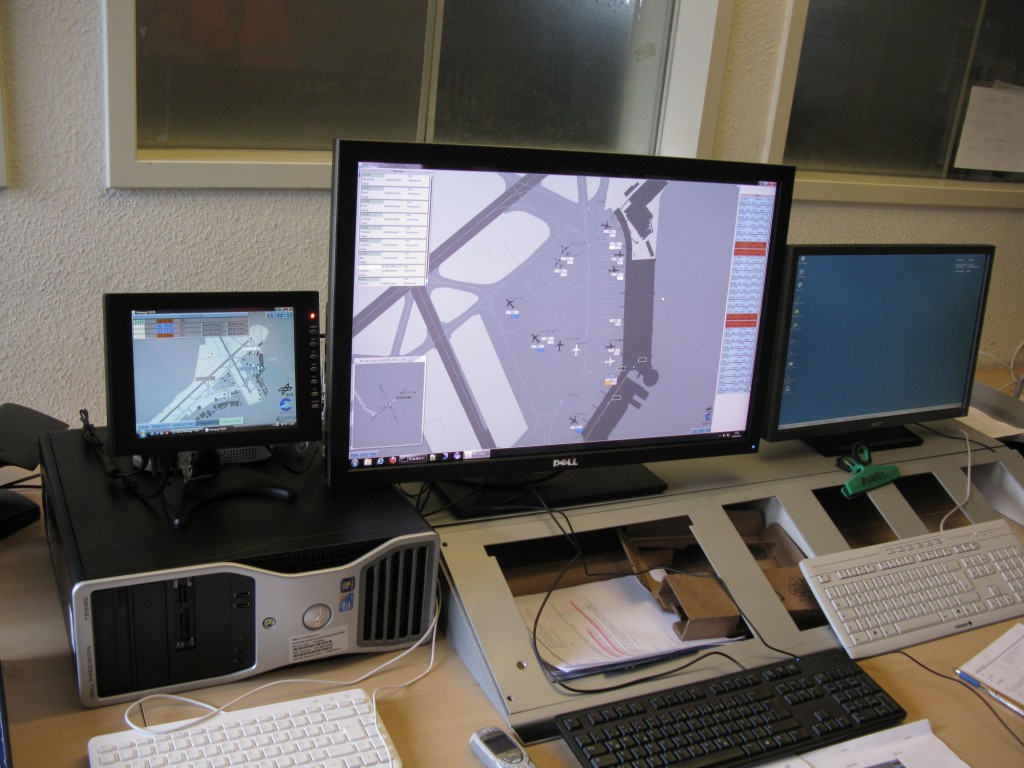
Extending the ARIF capabilities to Total Airport Management and the installation of a research airport operations center allows development and validation of concepts and support systems for airport management, which was part of another pillar in the Airport2030 project. A first demonstrator was developed and integrated in the control room providing actual and predicted traffic situation.
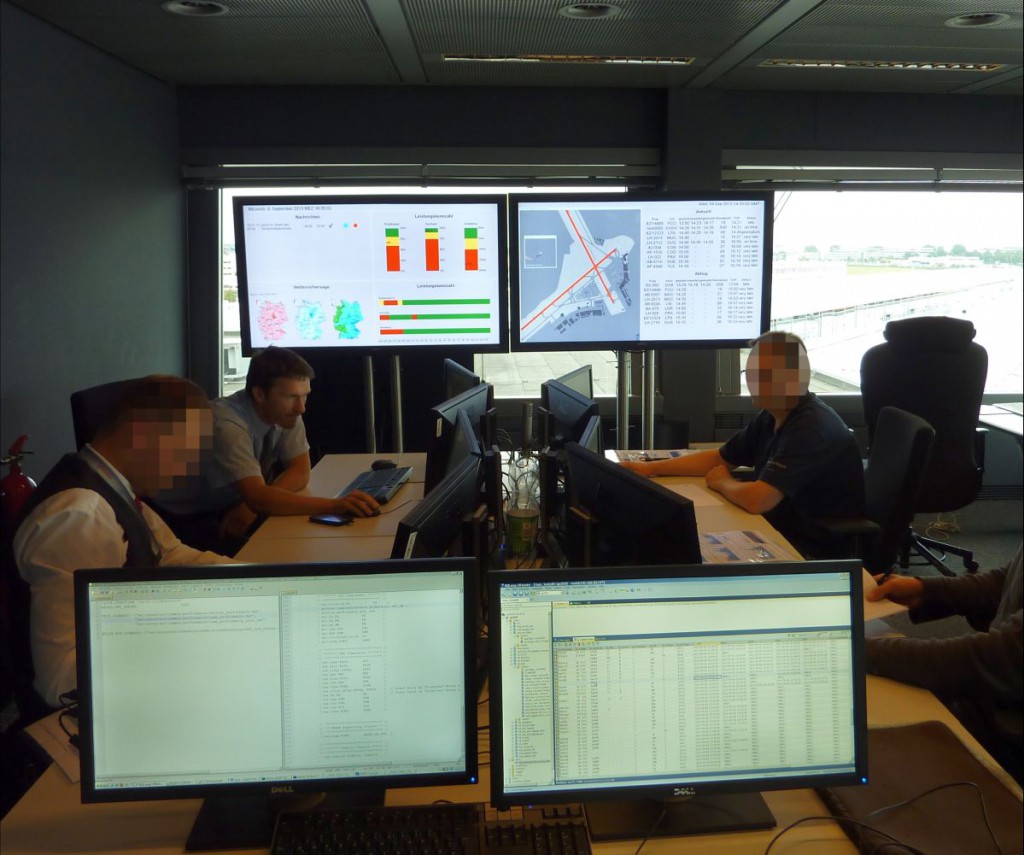
Using the prototype trials with operators were carried out at Hamburg Airport with direct connection to live data and the actual airport situation. With powerwall and client systems in place performance indicators are presented as a base for decision making processes and adaptions of operations. Prediction modules have been setup to forecast future development of the airport situation and support pre-tactical coordination.
Finally the ARIF was used for the pillar apron control also. An integrated apron controller working position has been developed, combining information and interaction from a number of systems into one. Again the eDEP from Eurocontrol was adapted to the needs for this working position. Operators evaluated the system during a number of trials. The system was placed into the control room with direct view to the apron, which gave optimal conditions for the trials as presented and real traffic situation could be compared and concept elements and functions could be explained.
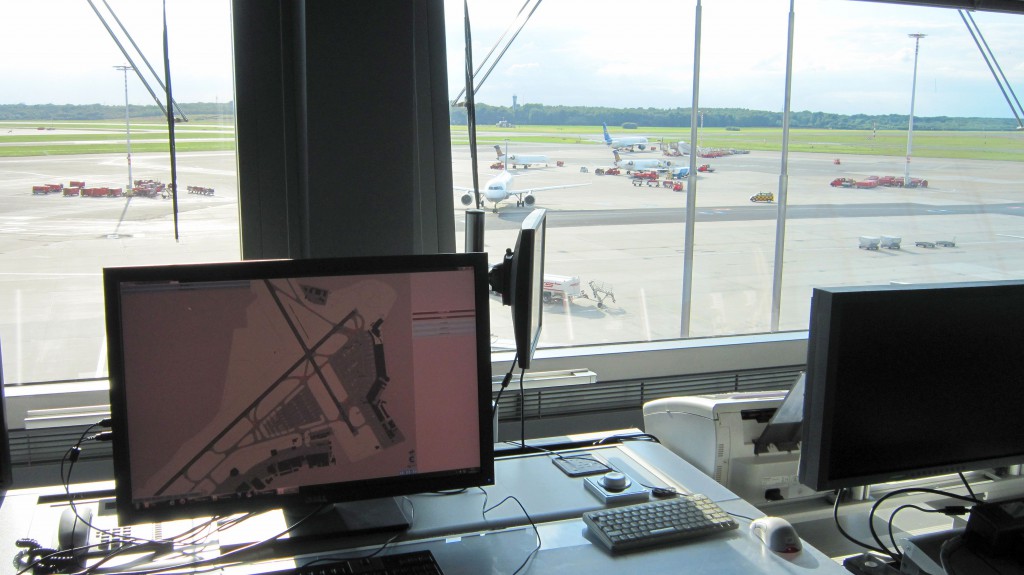
The presentation capabilities of the ARIF have been illustrated during the closing event of the Airport2030 project. All three pillars were setup and demonstrated with their developed systems in the ARIF. Project content, systems and results were presented to a high number of attendants.
